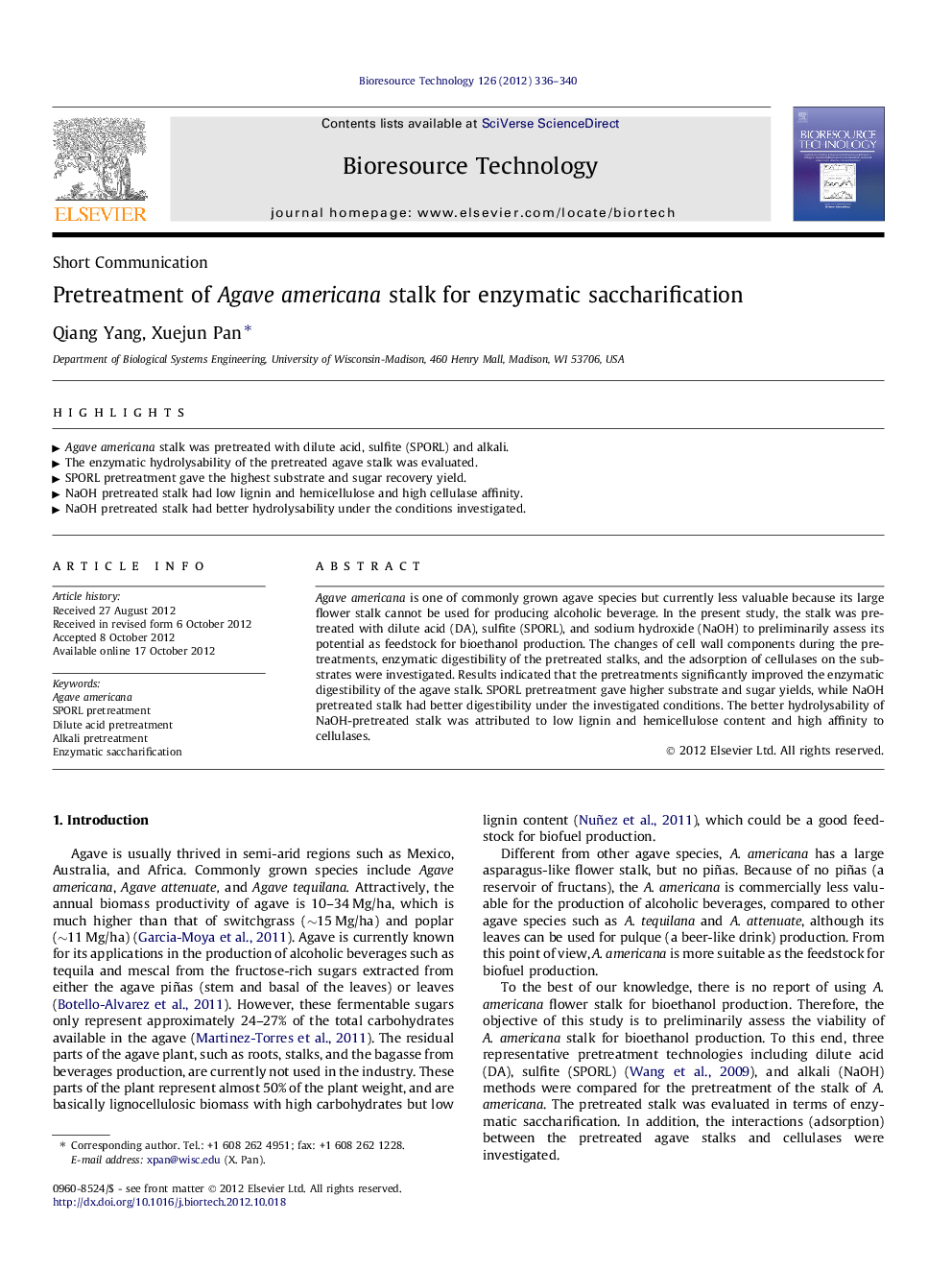| Article ID | Journal | Published Year | Pages | File Type |
|---|---|---|---|---|
| 681287 | Bioresource Technology | 2012 | 5 Pages |
Agave americana is one of commonly grown agave species but currently less valuable because its large flower stalk cannot be used for producing alcoholic beverage. In the present study, the stalk was pretreated with dilute acid (DA), sulfite (SPORL), and sodium hydroxide (NaOH) to preliminarily assess its potential as feedstock for bioethanol production. The changes of cell wall components during the pretreatments, enzymatic digestibility of the pretreated stalks, and the adsorption of cellulases on the substrates were investigated. Results indicated that the pretreatments significantly improved the enzymatic digestibility of the agave stalk. SPORL pretreatment gave higher substrate and sugar yields, while NaOH pretreated stalk had better digestibility under the investigated conditions. The better hydrolysability of NaOH-pretreated stalk was attributed to low lignin and hemicellulose content and high affinity to cellulases.
► Agave americana stalk was pretreated with dilute acid, sulfite (SPORL) and alkali. ► The enzymatic hydrolysability of the pretreated agave stalk was evaluated. ► SPORL pretreatment gave the highest substrate and sugar recovery yield. ► NaOH pretreated stalk had low lignin and hemicellulose and high cellulase affinity. ► NaOH pretreated stalk had better hydrolysability under the conditions investigated.
